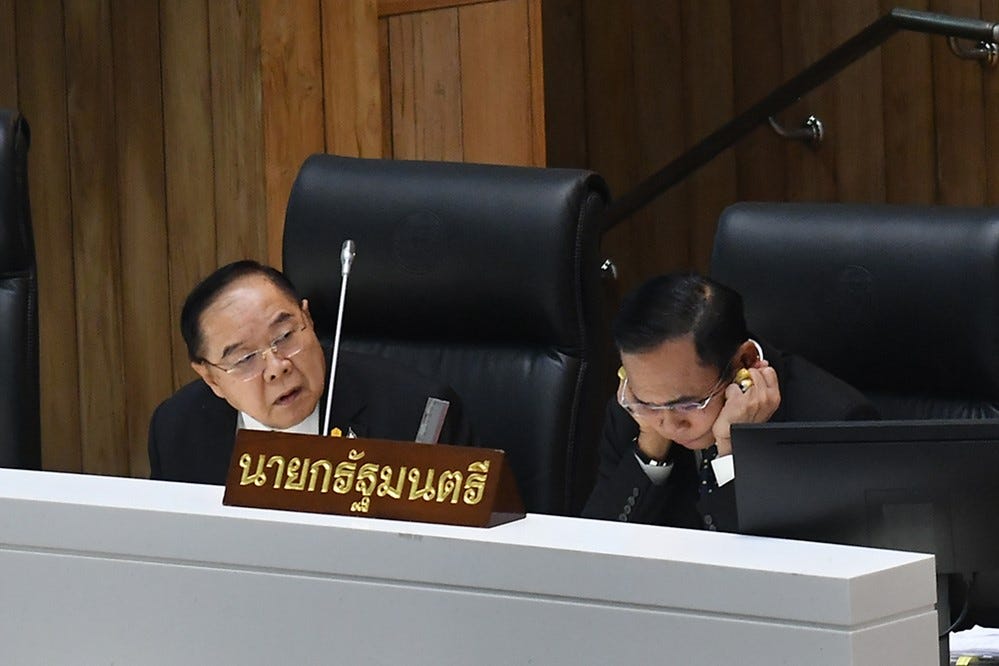Thai Ruling-Party Fissures Threaten Premier
Prayuth strains to keep rivals at bay
By: Pithaya Pookaman
Rivalries have broken out among the leaders of Thailand’s ruling Palang Pracharat Party (PPRP) to the point where the fissures threaten the reign of Prime Minister Prayuth Chan-ocha, who in early September barely survived a third censure debate, reportedly with the aid of last-minute cash handouts to avert a coup by dissidents in his…
Keep reading with a 7-day free trial
Subscribe to Asia Sentinel to keep reading this post and get 7 days of free access to the full post archives.

